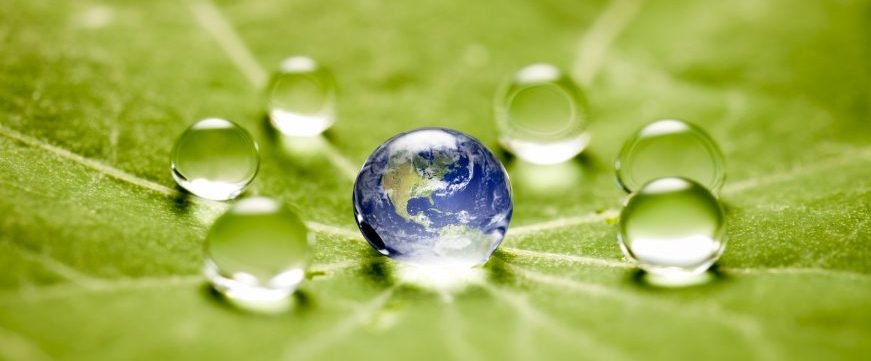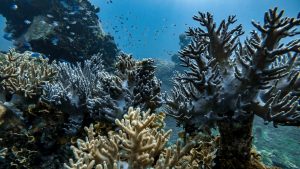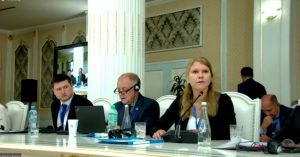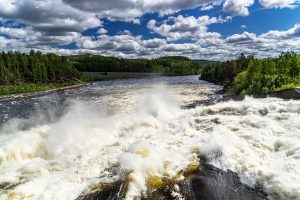- SIWI – Leading expert in water governance
- /
- Latest
- /
- What is Water Diplomacy? Special Issue out now!
What is Water Diplomacy? Special Issue out now!
Why water diplomacy? This topic is explored in a new Special Issue of the Journal of Hydrology, with SIWI’s Dr Martina Klimes as guest editor. In this blog post she shares her views on how collaboration over shared water resources can be used as a catalyst for peace.
 Macro 3X of the world globe in a drop on a green leaf. Tiny depth of field!
Macro 3X of the world globe in a drop on a green leaf. Tiny depth of field! What does diplomacy have to do with water?
Is cooperation over transboundary surface and ground waters the exclusive domain of diplomats and foreign policy experts? Or mainly the purview of water professionals negotiating agreements on shared water resources? Why should for example NGO representatives be involved in transboundary water dialogues? These questions lie at the heart of debates and dialogues around the theory and practice of water diplomacy.
SIWI and the International Centre for Water Cooperation, ICWC, were asked to edit a Special Issue of the Journal of Hydrology on the topic of water diplomacy, in response to a growing demand for knowledge about water diplomacy and in particular about the linkages between political and technical tracks. The issue is now out and can be found here.
The importance of efficient water management and good water governance practices is increasingly recognized, but the wider impacts of climate change on the hydrological cycle and shared risks in transboundary basins are not always understood. Many high-level decision-makers engaged in cross-boundary negotiations over shared waters recognize the need to create joint understanding among stakeholders sharing a freshwater resource.
Growing water scarcity and climate change effects are having global impacts now. Over 40 per cent of the world’s population relies on freshwater from rivers that are shared by two or more countries. Yet there is still a noted absence of cooperative management frameworks in more than 60 per cent of these basins. Increased water stress resulting from climate change processes, mounting environmental pressures, expanding economies, growing populations, and unsustainable consumption practices are increasing strain on the world’s shared water resources.
Many of the most affected regions are also, in parallel, impacted by political tensions, armed violence, and internal water mismanagement. Effective and sustainable solutions require better cooperation across and between actors and sectors; foremost the political and technical tracks of transboundary water management. One of the overarching themes in all the Special Issue articles is how to ensure that available technical knowledge informs the political tracks of water diplomacy and how to build trust effectively to ensure sustainability of water cooperation processes.
Through this Special Issue we want to bring water diplomacy closer to technical experts and ignite discussion on how different sectors and actors can work together more effectively. How can we in the water community better support different water diplomacy processes that contribute to stability, community resilience, conflict transformation, peacebuilding and regional cooperation? In selecting articles for inclusion in the Special Issue, we prioritized innovative approaches to water diplomacy and involvement of in-country-based authors.
We see that there is a continuous need to communicate more effectively across science, policy, and practice, attempting to speak the same water diplomacy language and striving for integrated approaches to tackle complex issues like transboundary water cooperation in conflict-affected regions. Combined, the assembled articles will facilitate knowledge and experience sharing across various water diplomacy fields and basins and strengthen linkages between technical aspects of water cooperation and policy-oriented diplomatic efforts.








